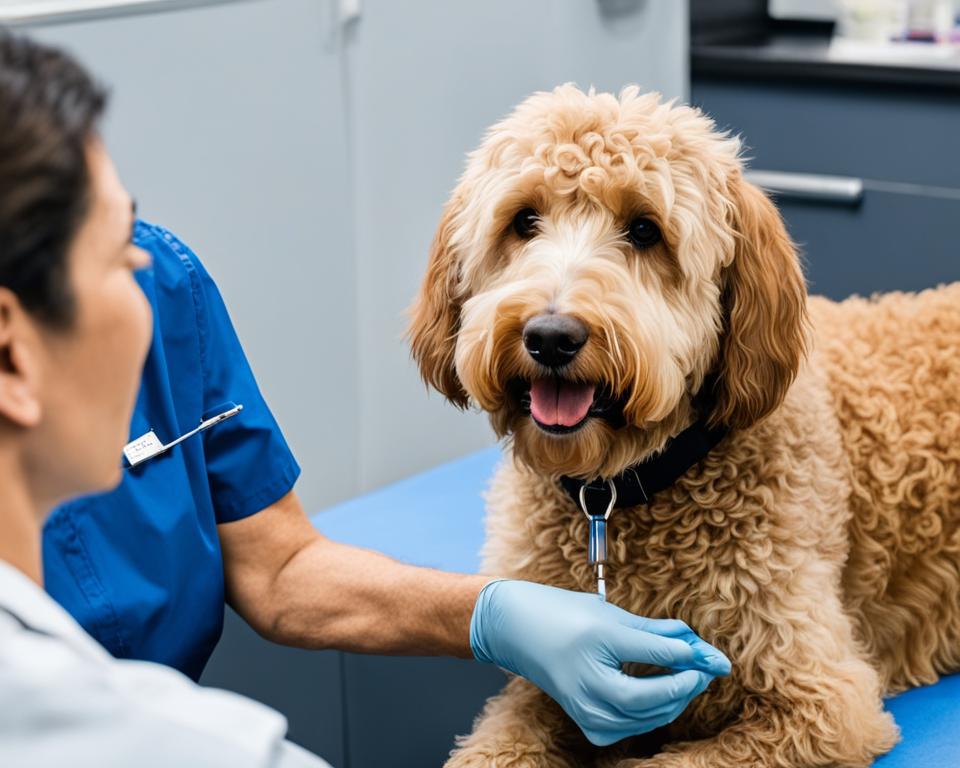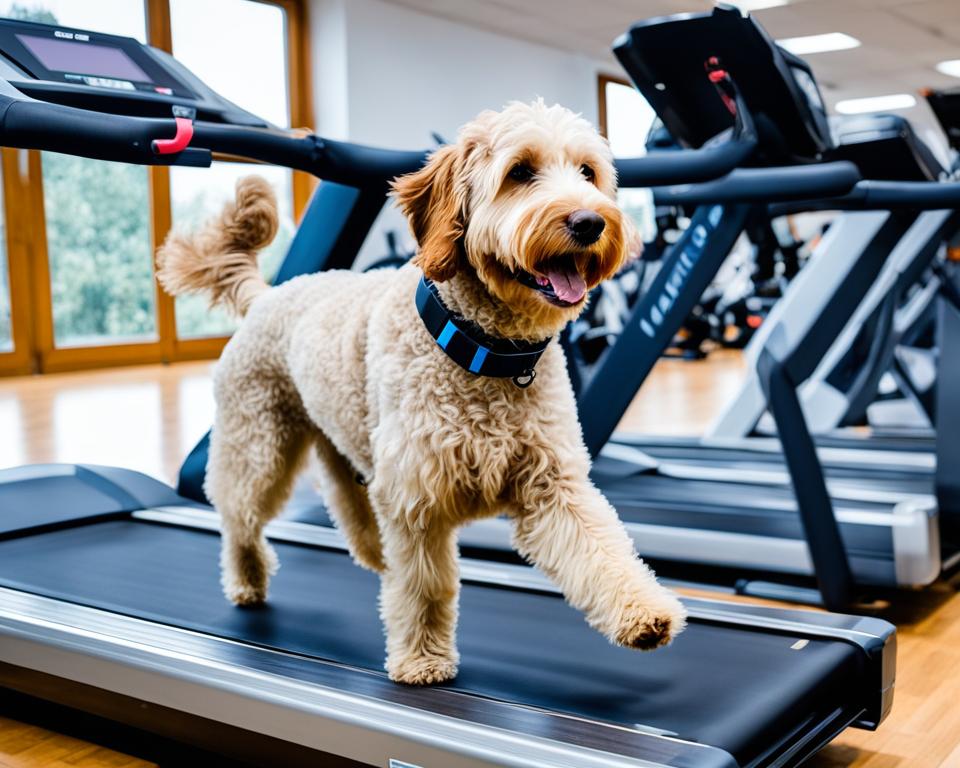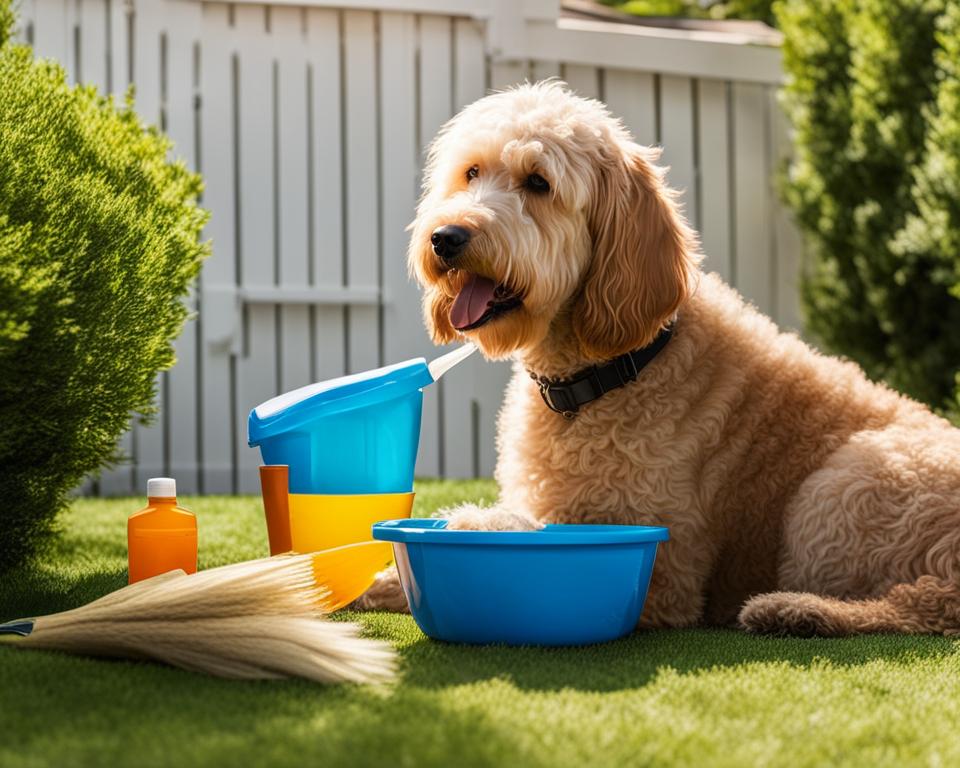Category: Labradoodle
-

Top Grooming Products for Your Labradoodle
Grooming plays a crucial role in maintaining the health and appearance of your Labradoodle’s coat. With their unique blend of poodle and Labrador Retriever genetics, Labradoodles require specific grooming products that cater to their needs. In this article, we will explore the top grooming products designed specifically for Labradoodles, ensuring that you have all the…
-

Important Health Screenings for Labradoodles
Labradoodles are generally a healthy breed, but it is important for responsible breeders and owners to prioritize health screenings. Health screenings help identify potential genetic diseases and ensure the well-being of Labradoodles. By conducting health tests and screenings on breeding parents, breeders can minimize the risk of passing on heritable conditions to puppies. The Core…
-

Choosing the Right Exercise Equipment for Labradoodles
Labradoodles are an active and energetic breed that require regular exercise to stay fit and healthy. Choosing the right exercise equipment is essential to provide them with the physical stimulation they need. In this guide, we will explore different types of exercise equipment suitable for Labradoodles and their benefits. Key Takeaways: Labradoodles are an active…
-

Summer Care Strategies for Labradoodles
Labradoodles are a popular breed of dog known for their pleasant temperament and unique characteristics. However, during the summer months, it is important to take extra care of Labradoodles to ensure their health and well-being. This section will provide a comprehensive guide to summer care strategies for Labradoodles, including grooming tips, heat safety, hydration, coat…
-

Winter Care Tips for Your Labradoodle
Labradoodles, like all dogs, need extra care during the winter months to keep them safe and comfortable. Despite their fur, dogs can still experience cold-related health issues such as frostbite and hypothermia. It’s important to take preventive measures and provide the right care to ensure your Labradoodle stays healthy and happy in the cold weather.…
-

Inspiring Labradoodle Adoption Stories
Labradoodle adoption stories celebrate the joy of rescue and the transformative power of love in pet companionship. These heartwarming stories showcase the positive impact of adopting Labradoodles and highlight the unique journeys of each adopted dog. From overcoming challenges to finding their forever homes, these stories inspire and encourage others to consider adoption as a…
-

Eye Care Essentials for Labradoodles
Labradoodles are lovable and active dogs that require proper eye care to ensure their vision and overall eye health. Just like humans, Labradoodles can experience various eye problems, from common allergies and infections to more serious conditions like cataracts and progressive retinal atrophy (PRA). By taking proactive measures and providing the necessary care, you can…
-

The Unique Personality Traits of Labradoodles
Labradoodles are popular breeds of dogs known for their unique combination of personality traits. They have captured the hearts of many dog lovers around the world because of their friendly, intelligent, and social nature. Labradoodles are quick learners and have an affable temperament, making them excellent therapy and assistance dogs. One of the notable characteristics…
-

Exploring the Different Coat Types of Labradoodles
Labradoodles are a popular breed known for their friendly nature and adorable appearance. One fascinating characteristic of Labradoodles is their wide variety of coat types. Whether you’re considering adopting a Labradoodle or already have one, understanding the different coat variations is essential for proper grooming and care. Labradoodles can have three distinct coat types: wool,…
-

Maximizing the Lifespan of Labradoodles
Labradoodles, the popular crossbreed between Labrador Retrievers and Poodles, have an average lifespan of 12 to 14 years. However, with proper care and nutrition, some Labradoodles can live up to 15 years or more. It’s important to understand the factors that can influence their lifespan, such as genetics, diet, exercise, and environmental factors. By focusing…